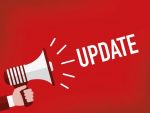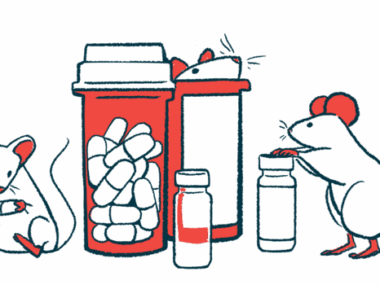Infusion therapy SLS-005 fails to slow ALS progression in trial
HEALEY trial data show no significant benefits of treatment vs. placebo
Written by |

SLS-005 did not significantly slow amyotrophic lateral sclerosis (ALS) progression compared with a placebo in the HEALEY platform trial, according to top-line data showing that the experimental therapy did not ease functional declines nor extend patient survival.
The therapy, developed by Seelos Therapeutics, also failed to slow declines in muscle strength and lung function, which, overall, means the trial failed to meet its primary and key secondary measures.
“Though we did not achieve success with this trial, we remain committed to using the data to advance ALS science, and our experience with the trial to understand ALS,” Merit Cudkowicz, MD, principal investigator and sponsor of the HEALEY ALS Platform Trial, said in a press release.
“We are thankful to the many people who participated in this study. We will learn from these results and continue to use this data to inform future advances in ALS trial design,” added Cudkowicz, who is also director of the Sean M. Healey & AMG Center for ALS, chief of the Department of Neurology at Massachusetts General Hospital (MGH), and the Julieanne Dorn Professor of Neurology at Harvard Medical School.
SLS-005 aims to slow ALS progression by breaking down toxic protein clumps
SLS-005 contains trehalose, a natural sugar molecule that promotes autophagy, which is a cellular recycling process that helps break down old and faulty proteins. In so doing, it prevents them from toxically accumulating in cells.
The therapy was designed to slow ALS progression by entering the brain and breaking down these toxic protein clumps. Such clumps, or aggregates, contribute to nerve cell death in the neurodegenerative disease.
SLS-005 was assessed in the HEALEY platform trial (NCT04297683) — a novel approach to drug testing in which multiple ALS therapy candidates are investigated simultaneously against a shared placebo group. Dubbed a perpetual trial, HEALEY continues to enroll adults with ALS whose first symptoms occurred within the last three years.
The trial is ongoing at dozens of U.S. sites. Once a participant is deemed eligible through the trial’s master protocol, he or she can be randomly assigned to any active treatment arm.
The SLS-005 arm (NCT05136885) enrolled 161 patients: Among them, 120 received weekly SLS-005 infusions into the bloodstream, and the rest, a placebo.
The participants also could continue to use a stable regimen of approved ALS therapies, consisting of Radicava (edaravone) or riluzole (e.g., Rilutek, Tiglutik, Exservan). Relyvrio (sodium phenylbutyrate and taurursodiol) was approved about eight months after the SLS-005 trial arm began enrollment, and some participants also ended up receiving that newly approved medication along with their assigned treatment.
As with all arms of the platform trial, the main goal was to evaluate whether SLS-005 could significantly slow disease progression relative to the placebo over 24 weeks, or about six months.
Progression was assessed with the ALS Functional Rating Scale-Revised (ALSFRS-R), which measures a person’s ability to perform activities of daily living, such as turning in bed, gripping a pen, climbing stairs, speaking, and breathing.
Monthly declines in ALSFRS-R scores seen in SLS-005, placebo groups
Seelos now has reported that the trial’s goal was not met, with patients in the SLS-005 arm and the shared placebo group seeing similar monthly declines in ALSFRS-R scores.
In an analysis accounting for functional declines and mortality, SLS-005 was associated with a 13% delay in disease progression or death; however, these differences failed to reach statistical significance. Similarly to the primary goal, other key secondary endpoints, such as muscle strength and respiratory function, also were not met.
Even though the trial results were negative, participants’ involvement in the trial contributed greatly to ALS research by providing substantial clinical and biomarker data that will help us better understand ALS disease mechanisms and the role of the cellular catalysts in people living with ALS and may help unlock keys to the next ALS treatment.
“We would like to extend our sincere gratitude to participants in the trehalose regimen who committed their invaluable time and energy in the trial as well as the NEALS investigators and study staff for their dedicated effort and expertise,” said Shafeeq Ladha, MD, Barrow Neurological Institute and co-lead investigator of the trehalose regimen.
“Even though the trial results were negative, participants’ involvement in the trial contributed greatly to ALS research by providing substantial clinical and biomarker data that will help us better understand ALS disease mechanisms and the role of the cellular catalysts in people living with ALS and may help unlock keys to the next ALS treatment,” Ladha added.
Seelos, however, shared some data suggesting that SLS-005 may have benefited a subset of patients who did not simultaneously receive Relyvrio while in the trial. Relyvrio was approved in the U.S. in 2022, but now is being withdrawn after it failed to show efficacy in a clinical trial.
During the SLS-005 trial, while it wasn’t initially planned for, some participants ultimately started using Relvvrio. Seelos believes this mid-trial addition could confound the results, and noted that, by removing those individuals, the analysis is cleaner and more in line with how the data appeared originally.
For its part, SLS-005 was generally well tolerated. More deaths occurred in the SLS-005 group, but none were considered related to treatment. Seelos notes that it plans to run additional analyses, including those related to biomarkers and patient subgroups, as the data become available.
The company now is also planning to meet with the U.S. Food and Drug Administration (FDA) to discuss the next steps for SLS-005’s development.
“We believe the observed signal and success probability is competitive to other recently FDA-approved therapies for ALS,” Raj Mehra, PhD, chairman and CEO of Seelos said in a company press release. “We plan to request a meeting with the FDA to discuss potential next steps for the program.”







